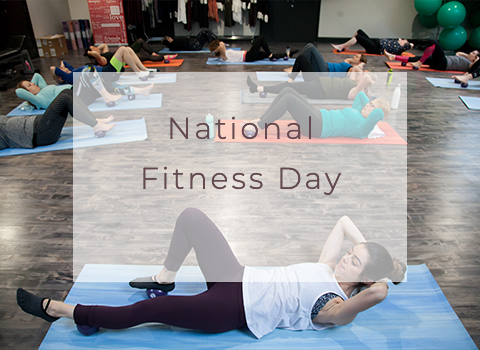This week it was National Fitness Day (23rd Sep). This marks a day in the calendar to celebrate all the ways in which movement makes us feel good and benefits our health. I previously wrote about how Pilates benefits your health here, this included how Pilates can reduce blood pressure, aid breathing, improve lung strength, enhance your immune system and promote relaxation, but today I want to take things from another angle too!
Whilst modern day life presents stressful situations for everyone at some stage, and more so now than ever it may seem, how you react to these events can make a huge difference to your coping strategies and overall mental health. Exercise is often suggested to aid mental health and we normally describe exercise as a way to keep fit and strong, where we do cardiovascular exercise to strengthen our aerobic system, and we do resistance training to build body strength; however a new study published just last month has now proven that exercise also strengthen’s your brain’s resilience to stress (1).
This study demonstrated that people who exercised showed less anxious behaviour after a stressful event than those who did not exercise. This is due to raised levels of a protein called galanin within the brain. There was also a direct link between the amount of exercise and the amount of galanin present, therefore the more exercise you complete the greater quantity fo galanin, and the more resilient you may be to stressful events.

Although we have just said regular exercise has now been found to be directly correlated with increased resilience to stress, I also want to discuss how rest days are important within your training plan. When you get motivated with starting a new plan, or start to see the results you want, it may be hard to slow things down and take rest days too, but these are important in order to continue progressing in the right way.
Rest days allow your body to recuperate from the stress of exercise by:
- Allowing muscles to repair after the micro-trauma they endure,
- Energy stores to refuel after carbohydrate depletion, which can take up to 24 hours post-exercise
- Restore sleep, where deprivation can lead to fatigue and underperformance, and a reduction in the time to exhaustion with continued training
Rest days also allow the body to adapt to the changes caused during the exercise session such as the physiological adaptation of increased plasma volume which results in increased aerobic fitness; and the creation of new muscle fibres in protein synthesis which results in greater muscle mass development.
Therefore, whilst training is seen as the positive step forwards and as putting the hard work in, do not overlook the importance of your rest days. When you are first starting you will need more rest days as your body needs time to adjust to the new stress, and then as you progress, rest days should be based on the types of workouts you are doing, their duration, and frequency.
I hope this post has given you some food for thought in your fitness, encouraging you do exercise regularly for the many benefits, and most recently the evidence that it can improve your reaction to stress, but to do this sensibly and allow your body to rest in between.
Tracy x
References:


